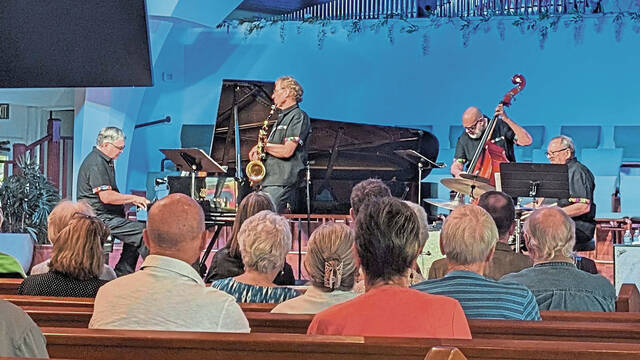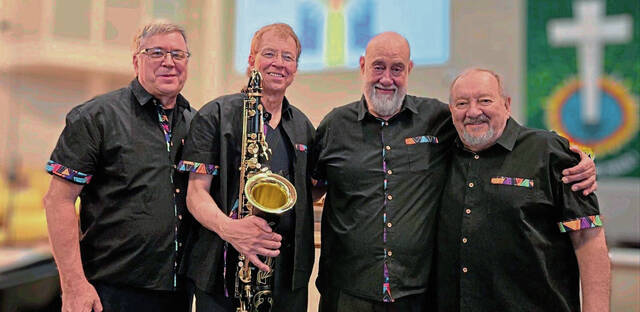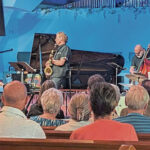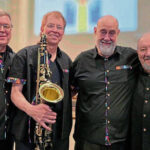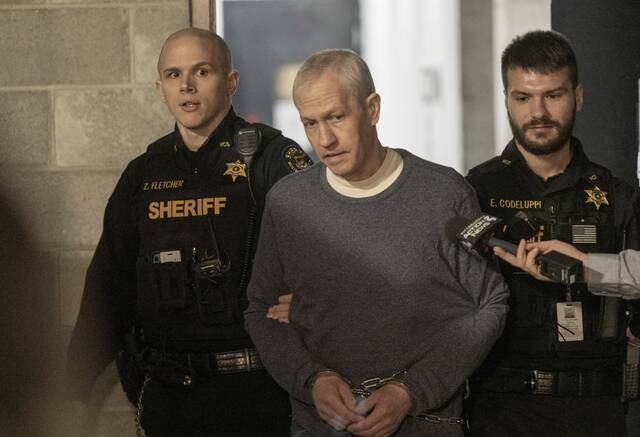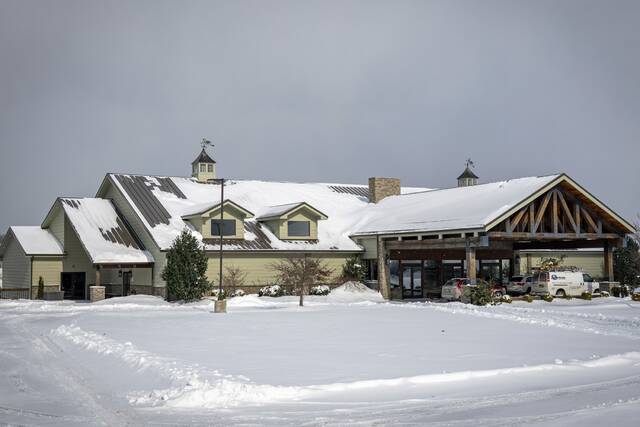The Rev. Bill Carter remembers the story his mother told him about attending a Louis Armstrong concert in Venango County as a teenager in the early 1950s. It was an all-white audience gathered to hear a racially mixed band.
“As a Black man, Armstrong could not get a hotel room in that community at that time,” said Carter, 65, pastor at First Presbyterian Church in Clarks Summit. “But, my mother said, ‘The room was changed by the music, and everybody felt good.’ There was something alive at the center of that performance. It transcended the divisions of race and arrogance, and for the moment, everybody was unified and lifted up.
“Was this the presence of the Holy Spirit? I dare to say yes.”
That type of transcendence is part of what drove him to form Bill Carter & the Presbybop Quartet, a jazz group rooted in the faith that also led him to become a Presbyterian minister. The group recently released a record, “Brand New Day,” written around the concept of what an eighth day of creation in the Book of Genesis might sound like.
Presbybop will perform at 4:30 p.m. Nov. 9 at First Presbyterian Church, 300 S. Main St. in Greensburg. Tickets ($15) will be available at the church.
Carter recently spoke with the Trib about intertwining spirituality and saxophone solos.
Q: Religious and conservative society at one time labeled jazz “the devil’s music,” and your bio mentions that you spent quite a while segregating your music from your faith. What are some of the links you’ve discovered between the two as Presbybop has grown over the years? And has that strengthened both your faith and your dedication to music?
A: I’ve explored the links for many years and have written extensively about them in my recent book, “Thriving on a Riff: Jazz and the Spiritual Life” (Broadleaf Books, 2024). In short, jazz is music that is profoundly open to the future. It is based on the assumption there is more to say: More notes to be added, more harmonies to be adjusted, more melodies to be created.
Therefore, it doesn’t make much sense to fundamentalists, musical or religious, who presume something is finished if it is published. By contrast, jazz musicians begin a tune, and who knows where it’s going to go? If that doesn’t prompt faith, nothing will.
Q: Is there a difference between a “secular” jazz piece and a religious one? And if so, how would you describe that difference?
A: Good music is good music. I used to assume that I knew the difference between “sacred” and “secular.” After 40 years of pastoral experience, any dividing line has become a dotted line. God can visit us anywhere, anytime.
So here’s what matters to me: Is the band prepared? Are they bringing their best skills to the moment of performance? Are they offering tones and rhythms that are honest to our human experience? Are they able to improve the lives of the listeners?
Q: When Presbybop first formed in the early ’90s, what kind of reception did you get from early congregations?
A: We have been welcomed with enthusiasm from the beginning. The response hasn’t changed, just deepened. This surprised me. The first time that I brought jazz to my church, I hid in the restroom before the service for a half hour, second-guessing my decision and fearing I would be fired.
Ninety minutes later, there was a standing ovation — after worship. That’s something that Presbyterians don’t normally do!
Q: Are there particular elements of traditionally sacred music that you’ve integrated into Presbybop’s sound?
A: Well, we will occasionally take an old hymn, mess with it, and see what happens. But usually we bring our imagination, trust and faith to bear on the music. These days, 95% of our concert music will be compositions of my own. They are infused with my own faith, hope and love.
I offer them as gifts and testimonies to the convictions that I hold most deeply. My compatriots help me bring them alive.


